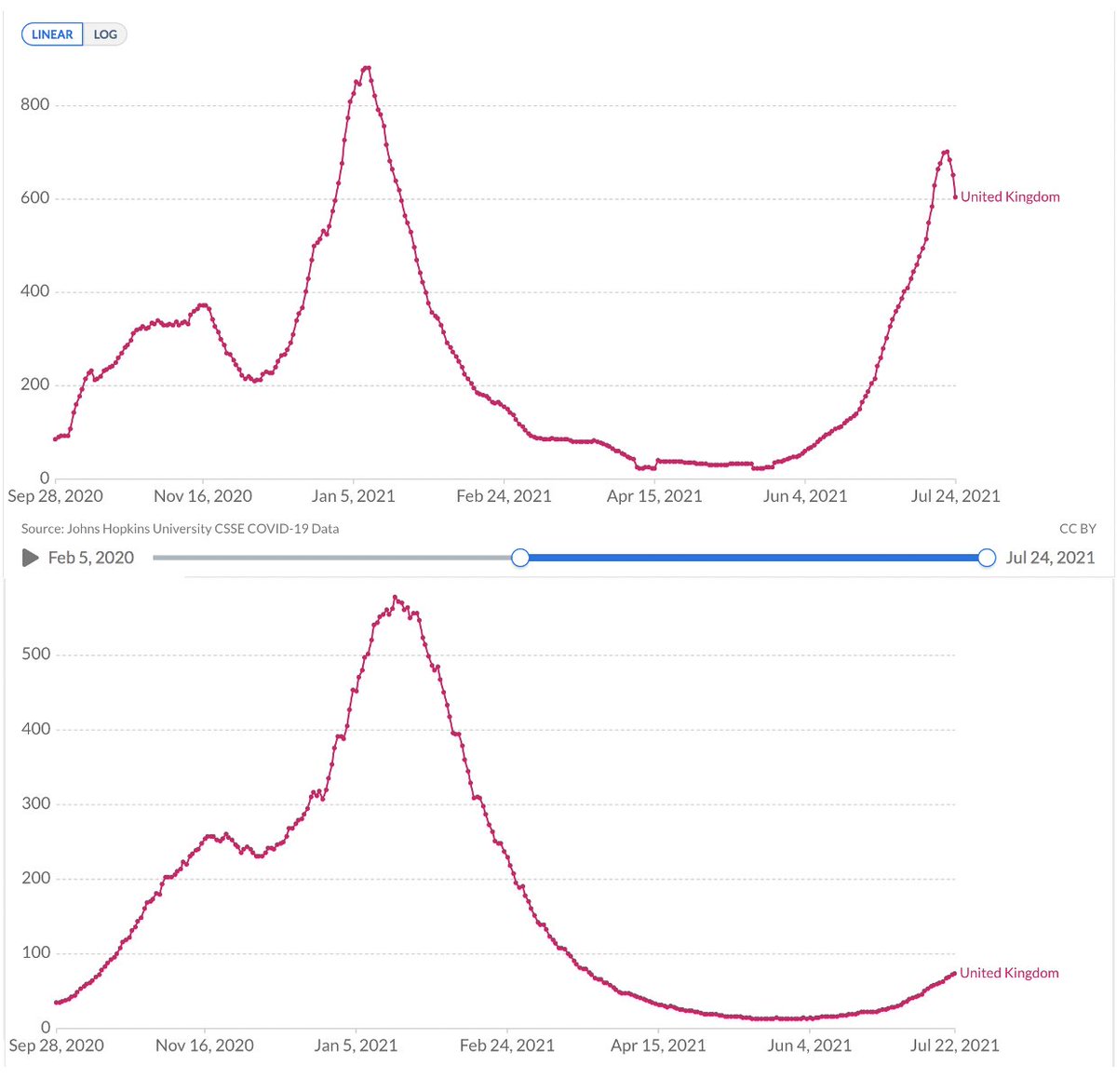
I support dramatic public health interventions in hard hit areas to slow Covid (and buy time to vaccinate everyone possible) but I strongly dislike this irresponsible mode of reporting which will scare the shit out of every parent with a kid with a cold. nytimes.com/2021/08/08/hea…
The hypothesis that a mild upper respiratory tract infection - even if caused by a new virus - causes a chronic dementing illness in children is a sweeping, massive, frightening claim. It is unlikely to my mind, given what we know about mild upper respiratory tract infections …
… but like all things, it is possible. Yet it is an extraordinary claim, and requires robust evidence which is thus far lacking. Our mantra that correlation does not equal causation goes out the window on this particular topic.
Understandably, this discussion invariably returns to “should we do more or less to mitigate spread”? I say much more. But that’s a separate question from boldly asserting that the 1/3 of Americans (including kids) with past SARS-Cov-2 infections (per CDC) are brain damaged.
What we know about COVID is bad enough — it is killing millions of people. We don't need to exaggerate the risk of an upper respiratory tract infection from a virus that can cause pneumonia and death.
Here’s a now somewhat dated article of mine exploring some of my concerns around the Long Covid narrative.
statnews.com/2021/03/22/we-…
statnews.com/2021/03/22/we-…
• • •
Missing some Tweet in this thread? You can try to
force a refresh




